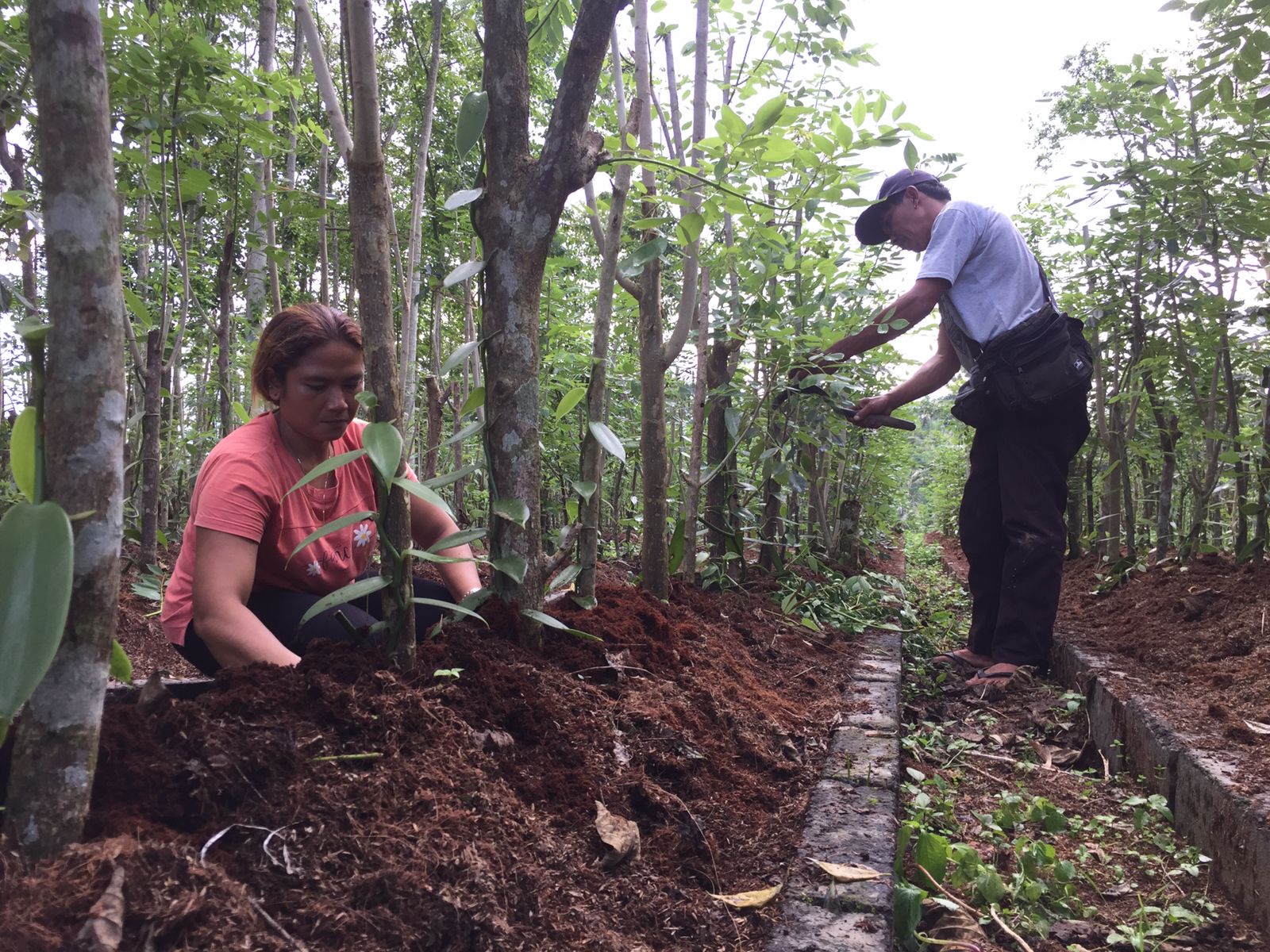
I reviewed our employees recently, and I thought I would share their conditions with you, for it is investment in the company that pays their wages.
First, let's look at the general picture in the area.
There is little employment here in the rural hills of Bali. Nearest equivalent is the chicken farms, and also the coffee plantations. But there are more chicken farms.
Both of these types of employers have a daily wage structure, paying Rp 60,000 per day. They call the employee in when required, sometimes as little as three days a month.
We are a little different. We use the established structure of a daily wage, but we pay Rp 80,000 per day and we also allow them to work whenever they wish. Perhaps unsurprisingly, we have a list of people who wish to work for us.
This isn’t entirely accurate. We have 3 youngsters, 17 years old, on probation pay of Rp 70,000 per day. Of these, one is excellent, already becoming skilled at pollinating, and we expect to promote him to Rp 80,000 shortly. We have earmarked him as a future manager. The other two just do a day’s work, more interested in chasing girls and entertaining themselves. Of the main group, which is about 50:50 men to women, one man is due to be promoted shortly, and is already acting manager. He will probably go up to Rp 100,000. Kadek, whom many shareholders will have met when viewing the plantations.
All in all, we employ 22 Balinese at present, including Dollar on the fishfarm. They are all officially on daily rates, which is the unofficial advice we received from the tax office. They don’t care about us till we are bringing in a trillion rupiah per year. We are still a trifle concerned, because as a PMA we feel we should be doing everything absolutely correctly. And when the daily rate is being paid on people working every day, well, maybe that should become salary with different legal ramifications. Tax office says don’t worry about it. Staff are happy.
Once we start to sell vanilla, of course things will change. For example, 5% of the shares go to a fund which pays out bonuses to the employees, and may well become the pension fund as well.
I didn’t structure this system. Dwitra did. He’s Balinese and lives in the villages, he knows what we should be doing, he is the person with friends in the tax office.
I’m happy to know we are paying our staff 33% more than the usual, and we aren’t big enough for this to be a problem and upset our neighbours.
I should add, it is important to put this into the context of rural Balinese life. For this wage is almost entirely disposable income.
You see, the villagers live in family compounds, so housing is free. One uncle will run the rice fields, with everyone pitching in for harvest and planting. The fields and woods are full of edible plants and fruit while they keep chickens and pigs. So food is free.
The coconut, so versatile, provides cooking oil, they cook over wood and sleep from sunset to sunrise.
So they have little need for money, which provides non essential items, like cigarettes and electricity. And fuel if they don't want to walk.
There are many people in London and New York who can't afford to smoke any more, with all their income going on necessities. Who is richer?
Rex Sumner
Royal Spice Gardens is an Indonesian Foreign Investment Company, in Indonesia known as a Perusahaan Modal Asing (PMA).
NIB Licence number 0220100502286. NPWP: 94.830.504.0- 905.000.
PT Royal Spice Gardens Indonesia, Jl. Raya Pejeng, Tampaksiring, Gianyar, Bali 80552, Indonesia
Website by Simia Solutions / Cre8 Design Studio
Powered by Pak Kriss’s Compliance Framework.
Even in uncertain times, credible, stable & realistic opportunities are available for the astute investor.
Get the edge by obtaining clear, concise and rapid information. Fill out the form to receive our latest prospectus!